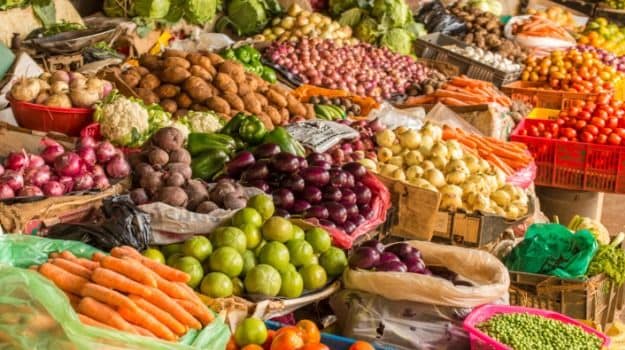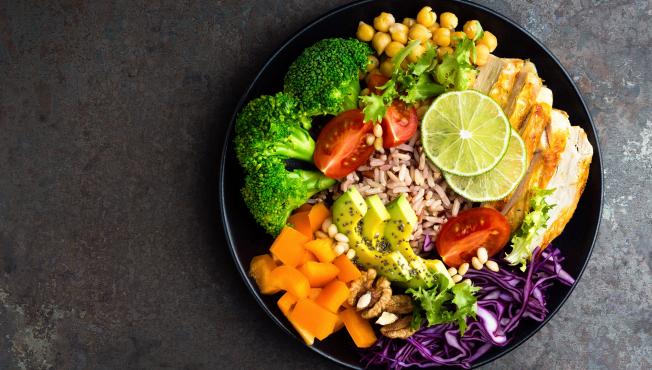Your daily eating decisions affect not only your own health, but the health of the planet, too.
Most people – myself included – have been conditioned to believe that “eating local” is a great way to reduce the carbon footprint of our diet and help the planet. The thinking is that by choosing foods which are produced locally, you avoid the greenhouse gas emissions associated with transporting those foods from faraway lands. For years, environmental activists and even powerful groups (including the United Nations) have advocated local-based diets as a meaningful, personal way to combat climate change.
Turns out that’s not the best way at all.
This would be a good approach if transportation accounted for a large percentage of a particular food’s carbon footprint. However, a recently published analysis by Our World In Data, using data gleaned from the biggest meta-analysis of food products and worldwide food industries and systems that we’ve ever done, data published in Science back in 2018, shows that that’s just not the case.
Transportation, somewhat counterintuitively, only makes up a relatively tiny portion of the share of emissions of most food products. The grand eco-benefits of eating a local diet, then, are largely mythical. Though a “locavore” approach may help the bottom lines of local growers and producers, and is certainly a concept worthy of general respect and support, the reality is that it really doesn’t yield the substantial environmental benefits we’ve been led to believe it does.
The best way to help the planet by way of your diet choices isn’t achieved by simply sticking to local produce. It’s much more focused, and can be summed in three short words:
Don’t eat beef.

If, like many of us, you’re a full-fledged carnivore and cringe at the thought of eliminating beef from your diet completely, it might be easier to just think of ways to cut back on it. Make hamburgers and steaks uncommon treats, not a several-times-a-week staple of your diet.
A look at this helpful chart (below) puts everything into perspective. Beef exerts a massive toll on the environment and climate when compared with other foods, even other meats. This is due in part to the large tracts of land required by cows for grazing, and also because they are a ruminant animal species, unlike pigs or chickens, whose environmental impact is far lower. Ruminants use a type of fermentation process in their digestive system to help break down consumed plant matter, with methane gas being an unfortunate by-product. The reality of hundreds of millions of flatulent cows blundering around the planet pumping methane gas into the air may seem amusing on one hand, but is actually a significant contributor to greenhouse gas emissions, with the enteric fermentation process of these ruminant animals accounting for 43% of total greenhouse gas emissions from the entire world’s agricultural activities.
You can also see the relatively benign impact of transportation (shown in red bands). Click on the thumbnail below for a full-size version.
It’s worth pointing out that the minuscule emissions generated by transportation don’t apply to foods that are shipped by air. However, this category accounts for a tiny, tiny percentage of the total – less than 0.2% in fact. The vast majority of our food is transported over long distances by ships. The most likely culprits for air-freighted food tend to be fresh vegetables and fruits which are either not in season or not grown locally. Fortunately, for us in the tropics, plenty of fresh fruits, veggies, and leafy greens are grown right here and do not require the services of an airplane.
Making the Change
Meatless Mondays are popular with many people, but why limit veggie-filled days to just Monday? If you’re used to more carnivore-friendly meals, see if you can pop in two days a week of veggie-only fare. Plant-based foods will almost always have a lower carbon footprint than meat-based foods, though again, it’s worth noting that all meats are not created equally in this sense, so you can still include meat in your diet. But by wisely choosing which meats you consume, you can reduce your diet’s environmental impact.

It’s also important to point out that these ideas are presented only from an environmental platform. Some people have ethical concerns over animal welfare, for instance, and that drives their diet decisions. It’s been suggested that pigs are a relatively high-intelligence animal, so some people consider that when deciding which meat to consume. Others have pointed out that, while an individual chicken is less impactful on the environment than a cow, we have to slaughter some 200 chickens to get an amount of meat equivalent to what we’d get from just one cow… and if you’ve ever seen the appalling conditions in which some chickens are raised and transported for slaughter, that may inform your decision-making, as well.

In the end, these are all personal decisions – albeit personal decisions which, collectively, have a significant impact on Earth. But knowledge is power, so if each of us is able to make informed decisions about our individual eating habits – whether motivated by eco-consciousness, health awareness, or animal welfare concerns – chances are those decisions will usually be better ones.
"ExpatGo welcomes and encourages comments, input, and divergent opinions. However, we kindly request that you use suitable language in your comments, and refrain from any sort of personal attack, hate speech, or disparaging rhetoric. Comments not in line with this are subject to removal from the site. "






















